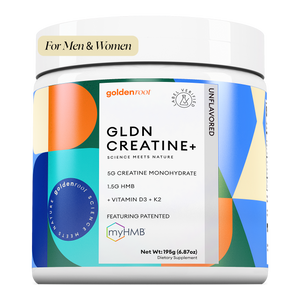Emerging research highlights the powerful synergy between berberine and probiotics. These two are well-known agents in metabolic and gut health. When used together, they may offer enhanced benefits for people with type 2 diabetes, elevated cholesterol, and other metabolic concerns.
This article explores the evidence behind this promising combination, the mechanisms that make it effective, and what to consider.
Why Combine Berberine and Probiotics?
Berberine has long been used in traditional medicine for its ability to regulate blood sugar, cholesterol, and gut health. Probiotics, beneficial/friendly bacteria that support digestion and immune balance, also play a role in modulating metabolism.
Together, they form a synergistic duo. The gut microbiota appears to play a pivotal role in enhancing the effectiveness of berberine. Probiotics can help restore microbial balance and increase berberine’s bioavailability. This synergy can potentially amplify health outcomes beyond what either ingredient offers alone.
Read more: is creatine safe while breastfeeding
Clinical Evidence and Mechanisms
Improved Postprandial Lipid Levels
A large clinical study in 2021 {the PREMOTE trial} evaluated the effects of combining berberine with a multi-strain probiotic in individuals newly diagnosed with type 2 diabetes. Participants who took both saw significantly greater reductions in postprandial (after meal) total and LDL cholesterol compared to those taking only berberine, probiotics, or placebo.
Specifically:
-
Total cholesterol dropped by 24.3 mg/dL in the combination group vs. 8.7 mg/dL in the placebo group.
-
LDL cholesterol fell by 16.5 mg/dL vs. 7.4 mg/dL in the placebo group.
These changes are clinically meaningful, as post-meal lipid spikes are linked to increased cardiovascular risk.
Gut Microbiota Modulation
Both berberine and probiotics influence gut microbial composition. Berberine helps reduce harmful bacteria and supports the growth of beneficial species like Bifidobacterium and Lactobacillus. When paired with probiotics, these benefits are amplified & promoting better nutrient absorption and metabolic balance.
Additionally, berberine may activate probiotic genes that suppress intestinal lipid absorption, acting like a “gut lipid sink” to improve cholesterol management.
Enhanced Berberine Bioavailability
Berberine on its own has relatively low bioavailability. However, the gut microbiota can metabolize it into dihydroberberine, a more absorbable form. By improving the gut environment, probiotics may facilitate this transformation.
Read more: How to Measure 5g of Creatine: Teaspoons, Tablespoons, and Simple Methods That Work!
Potential Health Benefits
This dual approach shows promise in supporting:
-
Better glycemic control in type 2 diabetes.
-
Lower LDL and total cholesterol, particularly postprandially.
-
Improved gut health and microbiome diversity.
-
Reduced inflammation, which is linked to metabolic dysfunction.
-
Potential medication reduction, particularly for managing blood sugar and lipids.
Key Considerations Before Starting
Individual Variability and Responses
Not everyone responds the same to supplements. Factors such as baseline gut microbiota composition, genetics, and co-existing conditions can influence outcomes.
Drug-Supplement Interactions
Berberine may interact with medications, especially those for diabetes, blood pressure, or blood thinners. Always consult a healthcare provider before adding berberine or probiotic supplements, especially if you're on prescription drugs.
Optimal Dosage and Duration
-
Berberine: Common dosages range from 500-1500 mg daily, often divided across meals.
-
Probiotics: Look for products offering at least 10-50 billion CFUs per serving, including strains like Bifidobacterium breve and Lactobacillus rhamnosus.
Work with a practitioner to personalize your dose and monitor effects over time.
Read more: Creatine for Muscle Preservation: How It Helps Maintain Lean Muscle Mass
What This Means for You!
Combining berberine with probiotics represents a science-backed, integrative strategy for managing metabolic health. Their complementary mechanisms support better lipid control and improved absorption.
However, this is not a one-size-fits-all solution. Safety, proper dosing, and individual responses must be considered. Talk and check with a qualified healthcare provider to determine whether this powerful duo is right for you.
Note: Information provided in this guide is for educational purposes only and is not intended as medical advice. Always consult with your physician before starting any new supplement.
References & Sources



